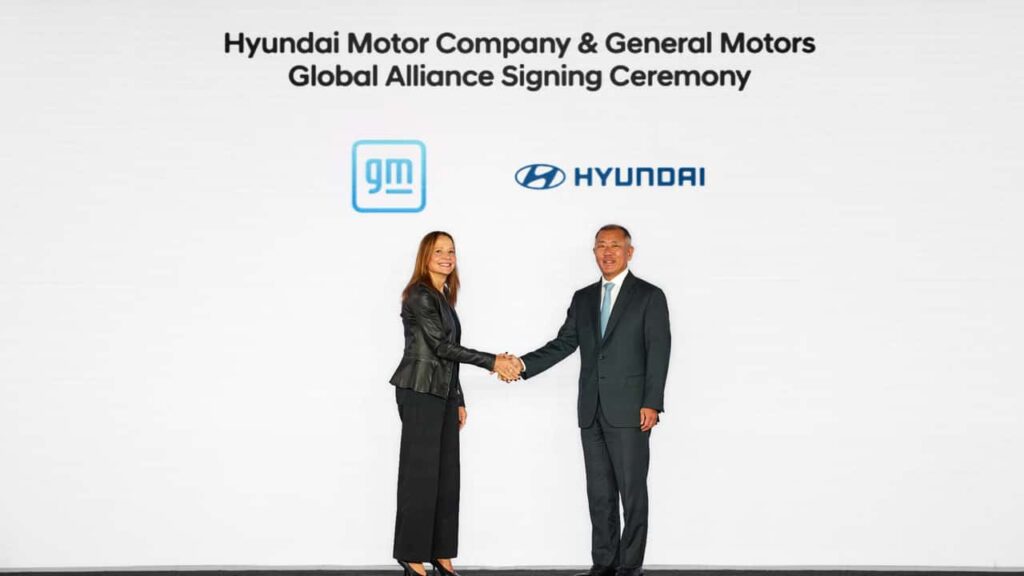
BREAKING NEWS: General Motors and Hyundai have officially confirmed a groundbreaking collaboration to develop a range of vehicles, including compact and midsize pickup trucks, set to launch in 2028 across Central and South America. This unexpected alliance aims to produce over 800,000 vehicles annually, marking a significant shift in the automotive landscape.
The partnership, first hinted at last year with a Memorandum of Understanding, is now fully detailed. GM will focus on midsize trucks, while Hyundai will spearhead the development of compact models and a new electric commercial van tailored for the North American market. This van is positioned as a smaller alternative to Chevrolet’s BrightDrop offering.
Both companies are committed to providing options with either traditional combustion engines or hybrid powertrains. The electric van is scheduled for production in the United States and is expected to launch at the beginning of 2028.
In a strategic move, Hyundai and GM will share platforms to maximize efficiency while ensuring that each vehicle maintains distinct branding through unique designs. Vehicles aimed at the Central and South American markets will be sold under their respective brands, enhancing their market presence.
But the collaboration goes beyond just manufacturing. The two automotive giants are also exploring joint procurement strategies for raw materials and parts, with a focus on sourcing low-carbon-emission steel. Additionally, they are considering partnership opportunities in fuel cell technology, highlighting their shared belief in hydrogen’s potential as a future energy source. This stands in stark contrast to Stellantis’ recent decision to abandon hydrogen fuel cell initiatives.
“This partnership allows us to cut development costs and accelerate engineering processes, enabling a quicker time to market,” said an official from Hyundai.
This collaboration is particularly significant as it signifies a trend where traditional rivals unite to tackle the challenges of modern automotive production. By pooling resources, GM and Hyundai aim to drive innovation while reducing costs amidst a competitive market landscape.
The announcement comes at a crucial time for both companies as they navigate the rapidly evolving automotive industry, which is increasingly leaning towards electric and hybrid technologies. The excitement surrounding this alliance is palpable, as it promises not only to enhance product offerings but also to create jobs and stimulate economic growth in the regions involved.
As the automotive world watches closely, the implications of this partnership could lead to further collaborations across the industry, setting a new precedent for how automakers operate in an increasingly interconnected market.
What’s Next: With plans for a total of five co-developed vehicles already in place, both GM and Hyundai indicate that this is just the beginning. The automotive industry should brace for additional announcements and innovations as these two giants forge ahead in their ambitious partnership.






